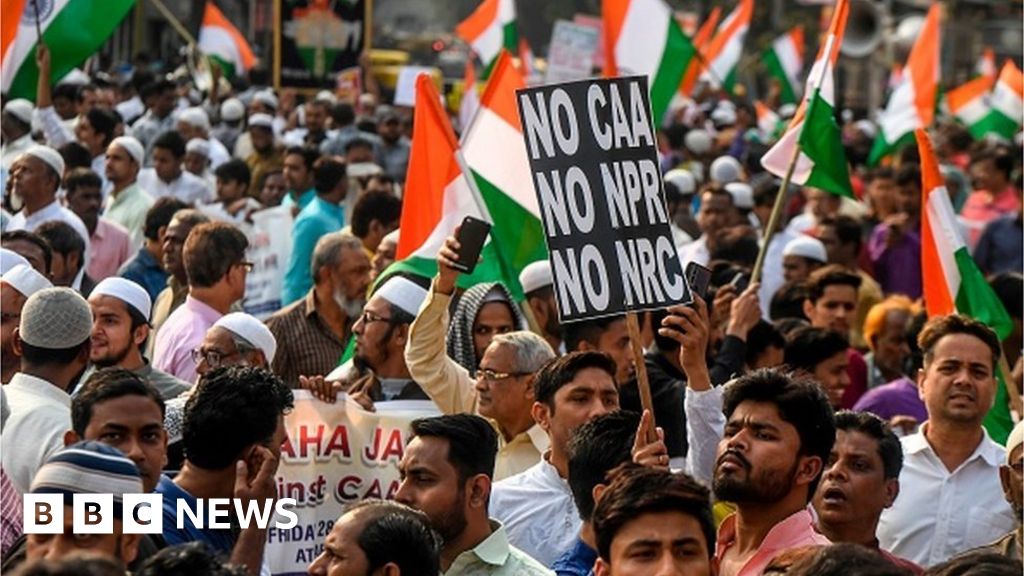India’s Citizenship Amendment Act (CAA) has finally been implemented by the government, five years after its passage in Parliament. Passed in 2019, the CAA aims to expedite citizenship for refugees from neighboring nations particularly those belonging to minority religious groups.

Also Read: Portugal’s Center-right Wins Election as Far-right Surges
Its exclusionary nature. which excludes Muslims has ignited protests and concerns about its impact on India’s secular fabric.
The CAA, enacted in December 2019, offers expedited citizenship to religious minorities from Pakistan, Bangladesh, and Afghanistan who entered India on or before December 31, 2014, due to facing religious persecution in their home countries.
The law excludes Muslim asylum seekers, a factor that has drawn criticism for being discriminatory and violating India’s secular principles.
The Citizenship Amendment Act was first introduced in 2016 but faced opposition and delays particularly in Assam, where concerns over illegal migration from Bangladesh have long prevailed.
The legislation’s passage in 2019 triggered protests, resulting in clashes and casualties. The CAA’s connection to the proposed National Register of Citizens (NRC) has fears of targeting India’s Muslim population. The decision to implement the CAA just before the upcoming elections shows it as a political tool.
Prime Minister Narendra Modi’s Bharatiya Janata Party (BJP) has championed the CAA as fulfilling a promise to persecuted minorities, while opposition parties criticize the timing as an attempt to influence voter sentiments particularly in states like West Bengal and Assam.
The implementation of the Citizenship Amendment Act has started protests in various parts of India, particularly in regions previously affected by anti-CAA demonstrations. Groups like the All Assam Students’ Union (AASU) have called for statewide shutdowns.
Also Read: Moscow: Student Jailed for Renaming Wi-Fi Network to Pro-Ukraine Slogan
The Citizenship Amendment Act was passed by the Indian Parliament on December 11, 2019. It plans to provide expedited citizenship to non-Muslim migrants from Pakistan, Bangladesh, and Afghanistan who belong to Hindu, Sikh, Christian, Jain, Parsi, or Buddhist communities.
The law excludes Muslim migrants, which has led to criticisms of discrimination and violation of secular principles enshrined in the Indian constitution.
The Citizenship Amendment Act was implemented by the Indian government, five years after its passage in Parliament. The implementation was announced ahead of the Lok Sabha elections, fulfilling a promise made by Prime Minister Narendra Modi’s government.
Applications for citizenship under the Citizenship Amendment Act will be accepted online through a designated web portal. In Assam, the All Assam Students’ Union (AASU) has called for a statewide shutdown to protest against the law.
Other states like Kerala have also saw protests, with the ruling Communist Party of India (Marxist) opposing the law’s implementation.
Also Read: US House Panel Advances Bill Potentially Banning TikTok
The Indian Union Muslim League (IUML) and the Democratic Youth Federation of India (DYFI) have approached the Supreme Court to challenge the implementation of the Citizenship Amendment Act.
They argue that the law is unconstitutional and discriminatory against Muslims violating the right to equality under Article 14 of the Constitution.
People have questioned the timing of the Citizenship Amendment Act’s implementation particularly as it coincides with the upcoming national elections.
Opposition parties accuse the government of using the law for political polarization and electoral gains. The government denies these allegations, stating that the Citizenship Amendment Act is intended to provide refuge to persecuted minorities.
Civil rights activists and opposition leaders view the Citizenship Amendment Act as an attempt to alter the secular character of India and further the Hindu majoritarian agenda. They continue opposing discriminatory policies and advocate for justice and equality for all citizens.
Also Read: Sweden Officially Joins NATO as Alliance’s 32nd Member























